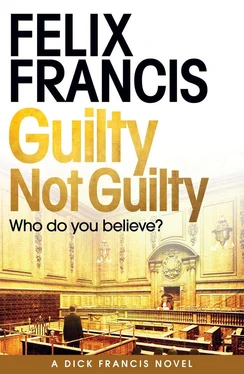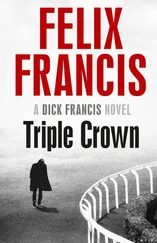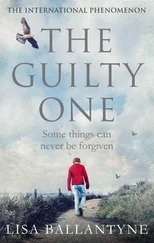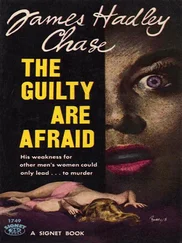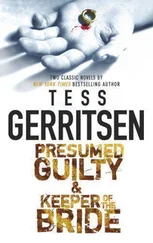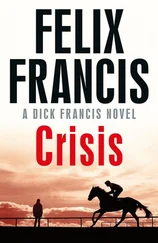Jack Westcott, our GP and the doctor from Warwick Racecourse, was also there with his wife. As was Simon Bassett from Underwood, Duffin and Wimbourne of Chancery Lane.
And, in death as they had done so in life, the village people of Hanwell did Amelia proud, gathering together in great numbers to bid her farewell.
Even, oh, yes, well, solicitor James Fairbrother, MA (Oxon), TEP, had turned up to pay his respects to his ‘dear old lady’.
For me, however, it felt like I existed in my own little bubble of solitude and isolation, an unreality that I found difficult to comprehend.
But it was all too real.
Three days earlier I had finally been taken by a police family-liaison officer to the John Radcliffe Hospital mortuary to say goodbye to my wife. It was a dreadful experience and, once again, I should have taken Douglas’s advice to stay away.
‘Remember her as she was,’ he had told me. ‘Not as she is now.’
But it was something I had needed to do, if only to prove to myself that it really was her and that she was gone for good.
More than three months in a deep freeze had done its worst but the body presented to me under a white sheet on a trolley in the mortuary chapel was undeniably that of Amelia Jane Gordon-Russell.
But, somehow, it wasn’t her — it was just a shell of her.
My vibrant, funny and beautiful wife, full of life and love, had departed long ago, and it was as close as I’d ever come to believing that the souls of the dead go elsewhere.
I had taken her favourite dress with me to the hospital so that she could be buried in it and that was all I could now think of as I sat staring at the right-hand of the two coffins positioned side by side below the altar.
I only half-heard the service although everyone told me afterwards that it was very moving.
Douglas read a eulogy on my behalf.
I had written it the previous afternoon but I had bottled out of delivering it as I wouldn’t have been able to do so without breaking down, and that would have displayed my raw emotions for everyone to see.
‘No one will mind a few tears,’ Douglas had said, but even he could see that it would be too much for me to bear.
As it was, even he cried through the whole thing and maybe I was the only person in the church at that moment with dry eyes. I had done all my weeping as I’d written it, huge splashes of tears on the paper making the words so unclear that Douglas had had to copy the whole thing out again so he could read it.
After forty minutes the sad little procession was reversed, with Mary carried out first and Amelia following, both coffins placed in the waiting hearses ready for the short trip to their final resting place.
Long gone were the days when most village churchyards had the space available for modern burials.
And, anyway, the two women had lived in different parishes. The solution had been to arrange for them to lie side by side in a single grave in the cemetery at Hardwick Hill on the edge of Banbury.
Douglas pushed my wheelchair outside and I sat by the church door as all the mourners filed past in front of me, each one shaking my hand and expressing their condolences.
It was another ordeal I could have done without, but it was also another that had to be done.
How was it, I wondered, that convention and tradition forced a bereaved and broken-hearted husband to suffer the mental trauma of a public funeral of his recently departed lover, at the very moment when he was least able to cope with it?
Mark Thornton came up and stood in front of me. He tentatively held out his hand towards me. I reached out and shook it. He nodded at me twice, before turning away. No words were necessary. We had both understood the significance of that moment.
Mark had arranged that, while the immediate family went away to the cemetery for the burials, everyone else would go along the road to his pub for refreshments, all at his own expense.
Maybe that was the price of a guilty conscience.
At least Joseph Bradbury hadn’t been in the line but, at the very end, when I had thought that the church must be empty, his wife Rachael appeared. It was as if she had been hiding at the back and plucking up the courage to show herself.
‘Hello, Rachael,’ I said.
‘I wish you were dead too,’ she said acidly by way of a greeting.
‘If all you were going to do was to be unpleasant,’ I replied, ‘why did you bother to come?’
‘To tell you that Joe didn’t kill Amelia.’
‘How do you know?’ I said. ‘Were you there?’
‘No, of course not,’ she said. ‘But I still know he didn’t kill her. He wouldn’t have.’
The ever-loyal wife , I thought. Still believing in her husband’s innocence in the face of overwhelming evidence. Like Primrose, wife of Harold Shipman, the UK’s most prolific serial killer, who persistently refused to believe that her husband had done anything wrong, and even offered chocolates to the families of his victims during breaks in his trial at Preston Crown Court.
‘And do you also deny that Joe tried to kill me?’ I asked Rachael.
‘Of course,’ she said. ‘You just had a car accident.’
‘And stealing a hundred thousand pounds from his own mother? Was that an accident as well?’
‘She didn’t need it while we did. Stupid old bag was loaded.’
I stared at Rachael and wondered if it had been she who had actually thought up that particular venture.
‘Go home,’ I said to her. ‘Before someone finds out that you are married to Joe. Your husband is not very popular hereabouts and I’d hate it to be taken out on you.’
If she thought I was threatening her, she’d be right.
And, as if to reinforce my threat, the two Thames Valley policemen came walking over towards me. Seeing them coming, Rachael scuttled away past the waiting hearses and out of sight along the road. I couldn’t imagine why she had come in the first place.
‘How’s it going?’ asked the chief inspector, shaking my hand.
‘You mean apart from being at the funeral of my wife and her mother?’
If he’d expected me to make things easy for him, he was much mistaken.
‘I’m so sorry,’ he said, looking appropriately contrite.
If anything, his sidekick appeared slightly amused by the exchange, and I found that, somewhat surprisingly, I was becoming quite fond of Detective Sergeant Dowdeswell.
‘I want my car back,’ I said to the DCI.
‘But can you drive like that?’ he asked insensitively.
‘That’s not the point,’ I replied angrily. ‘I want my car back now, whether I can drive it or not. And my computer, and my mobile phone. I also want my wife’s things that you lot took away.’
The DCI looked somewhat stunned that I was being so aggressive, but they’d been hanging on to my stuff now for three months and I felt that, if it didn’t come back very soon, it never would.
‘I’ll sort it,’ said the detective sergeant, getting his boss out of a hole. ‘I’ll get someone to drive the car over and leave it in your driveway. I’ll put the other things in the boot, that’s unless the CPS need to keep something for the trial. I’ll speak to them about it.’
‘Thank you,’ I said, and I smiled at him.
Douglas came over and stood behind the wheelchair, ready for action.
It was time to go.
‘Will you excuse me now?’ I said to the policemen. ‘I have to go and bury my wife.’
So here I was in June sitting in the witness services area of Oxford Crown Court.
‘How do you think it’s going so far?’ I asked the detective sergeant.
‘Much too early to say, and I shouldn’t be saying anyway, not to you as a witness.’ He paused for a moment, looking around him, but he then continued. ‘But I can tell you that most of the Monday was taken up with swearing in the jury, plus legal arguments and the other formal stuff. The defence were again doing their best to have the indictments separated so that Joe would face three trials instead of one.’
Читать дальше
